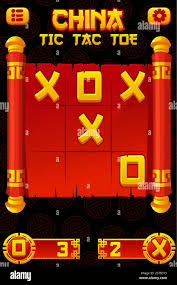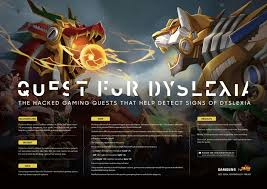- Language Shift on Steam
- Mandarin (Simplified Chinese) has overtaken English as the most-used language on Steam
- 33.7% of Steam users now use Mandarin, compared to 33.5% using English
- Over 66% of Steam users have a non-English primary language setting

- Factors Driving Chinese Gaming Growth
- Black Myth: Wukong has been a significant catalyst for increased PC and console gaming interest
- Successful Chinese games like Genshin Impact, Infinity Nikki, Honkai: Star Rail, and Zenless Zone Zero
- Tencent’s extensive presence in the gaming market
- Observations from Japanese Game Developers

- Chinese game projects are characterized by:
- Significantly larger budgets
- Massive workforce
- More creative freedom
- Willingness to pursue unconventional game concepts
- Broader Mandarin-Speaking Gaming Market
- Beyond mainland China, Mandarin is widely spoken in:
- Taiwan
- Singapore
- Malaysia
- Significant presence in South Korea and Vietnam
The article suggests a transformative moment in the global gaming landscape, with Chinese developers and gamers playing an increasingly prominent role.

- Language Shift on Steam
- Mandarin (Simplified Chinese) has overtaken English as the most-used language on Steam
- 33.7% of Steam users now use Mandarin, compared to 33.5% using English
- Over 66% of Steam users have a non-English primary language setting
- Factors Driving Chinese Gaming Growth
- Black Myth: Wukong has been a significant catalyst for increased PC and console gaming interest
- Successful Chinese games like Genshin’s Impact, Infinity Nikki, Honkai: Star Rail, and Zenless Zone Zero
- Tencent’s extensive presence in the gaming market
- Observations from Japanese Game Developers
- Chinese game projects are characterized by:
- Significantly larger budgets
- Massive workforce
- More creative freedom
- Willingness to pursue unconventional game concepts
- Broader Mandarin-Speaking Gaming Market

- Beyond mainland China, Mandarin is widely spoken in:
- Taiwan
- Singapore
- Malaysia
- Significant presence in South Korea and Vietnam
The article suggests a transformative moment in the global gaming landscape, with Chinese developers and gamers playing an increasingly prominent role.
The Evolution of Chinese Game Development: A Comprehensive Analysis
Historical Context
Historically, the Chinese gaming market was predominantly focused on mobile and online games, with a reputation for producing clone games and free-to-play titles. However, the landscape has dramatically transformed over the past decade, evolving into a sophisticated, innovative, and globally competitive industry.
Key Transformation Phases
1. Mobile Gaming Dominance (Early 2010s)
- Rapid smartphone adoption drove massive mobile game market
- Tencent and NetEase emerged as global leaders in mobile gaming
- Focus on microtransaction-based revenue models
- Primarily casual and multiplayer online games

2. Global Expansion and Investment (Mid-2010s)
- Chinese companies began acquiring international game studios
- Significant investments in game development technologies
- Expansion of game genres beyond traditional mobile platforms
- Growing emphasis on high-quality, narrative-driven experiences
3. Creative Renaissance (Late 2010s – Present)
- Shift from replication to original, innovative game design
- Increased investment in AAA-quality game development
- Strong focus on cultural storytelling and unique artistic styles
- Emergence of globally recognized Chinese game franchises
Technological and Creative Advancements
Game Development Infrastructure

- Massive investments in game development technologies
- World-class animation and graphics capabilities
- Large, skilled workforce with extensive technical training
- Advanced motion capture and rendering technologies
Cultural Storytelling
- Integration of Chinese mythology, history, and cultural narratives
- Games like Black Myth: Wukong showcase sophisticated storytelling
- Global appeal through unique cultural perspectives
- Sophisticated character and world-building techniques
Economic and Industry Factors
Funding and Resources
- Substantial government support for tech and gaming industries
- Venture capital and private investment in game development
- Economies of scale allowing for massive development budgets
- Lower development costs compared to Western markets
Global Market Penetration

- Chinese games gaining international recognition.
- The success of titles like Genshin’s Impact, Honkai: Star Rail
- Expanding market share on platforms like Steam
- Growing export of gaming intellectual property
Challenges and Opportunities
Regulatory Landscape
- Strict domestic game approval processes
- Navigating international market regulations
- Balancing creative freedom with compliance
Future Trajectory
- Continued investment in high-quality, original game development
- Potential for becoming a global game development leader
- Increasing focus on console and PC gaming markets
- Further technological innovation and creative expression

Conclusion
China’s gaming development has transformed from a market focused on replication to a hub of innovation, technological prowess, and creative storytelling. The industry’s evolution reflects broader changes in China’s technological and creative capabilities, positioning it as a significant global player in game development.

Maxthon
Maxthon has set out on an ambitious journey aimed at significantly bolstering the security of web applications, fueled by a resolute commitment to safeguarding users and their confidential data. At the heart of this initiative lies a collection of sophisticated encryption protocols, which act as a robust barrier for the information exchanged between individuals and various online services. Every interaction—be it the sharing of passwords or personal information—is protected within these encrypted channels, effectively preventing unauthorised access attempts from intruders.
This meticulous emphasis on encryption marks merely the initial phase of Maxthon’s extensive security framework. Acknowledging that cyber threats are constantly evolving, Maxthon adopts a forward-thinking approach to user protection. The browser is engineered to adapt to emerging challenges, incorporating regular updates that promptly address any vulnerabilities that may surface. Users are strongly encouraged to activate automatic updates as part of their cybersecurity regimen, ensuring they can seamlessly take advantage of the latest fixes without any hassle.
In today’s rapidly changing digital environment, Maxthon’s unwavering commitment to ongoing security enhancement signifies not only its responsibility toward users but also its firm dedication to nurturing trust in online engagements. With each new update rolled out, users can navigate the web with peace of mind, assured that their information is continuously safeguarded against ever-emerging threats lurking in cyberspace.

